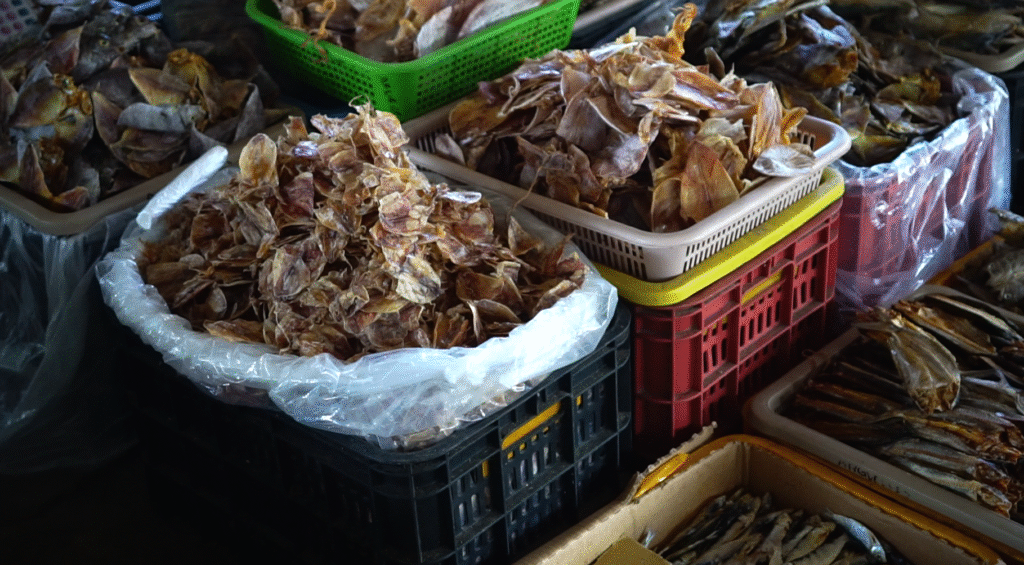Along the shores of Poblacion East in Milagros, Masbate, 69-year-old Nenita Albar recalls joining her neighbors to fish when she was just nine. The waters teemed with marine life, and squid catches were once so plentiful and large, they filled the salt-scented air with promise. “Since I was young, this has been our family’s livelihood. The squids, they were really big,” she says.
Today, dried squid, or mara na pusit, remains a defining product of Masbate’s coastal economy, its chewy texture and briny depth drawing tourists and traders alike. Local fisherfolk, like Albar, have spent their lives mastering the rhythms of the sea as they cast lines, sun-dry squid, and send their harvests from Masbate’s shores to dining tables as far as Saudi Arabia.
But as the country reckons with record-high heat indices and the cascading effects of climate change, this traditional livelihood is undergoing a rapid, sun-scorched transformation.
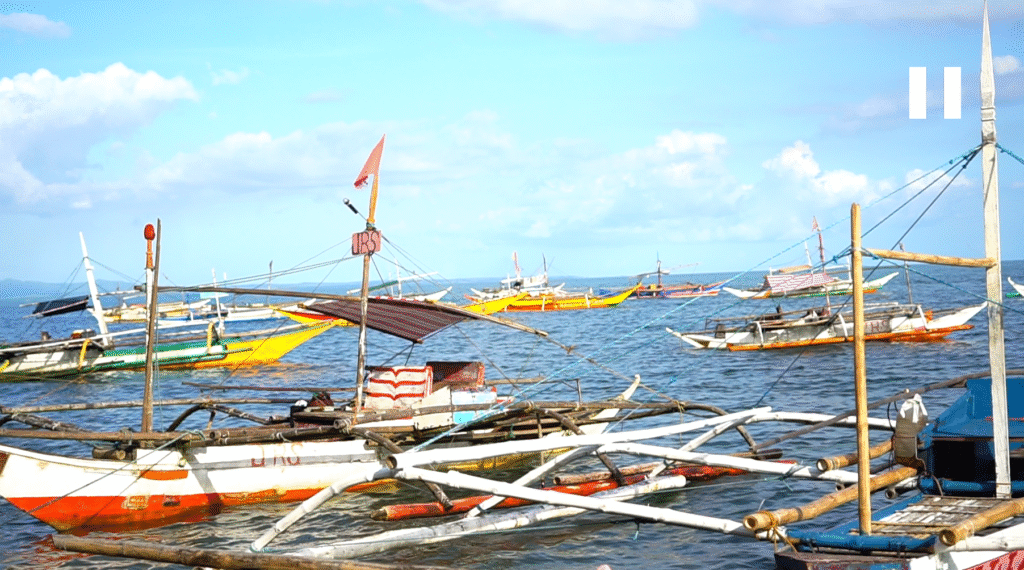
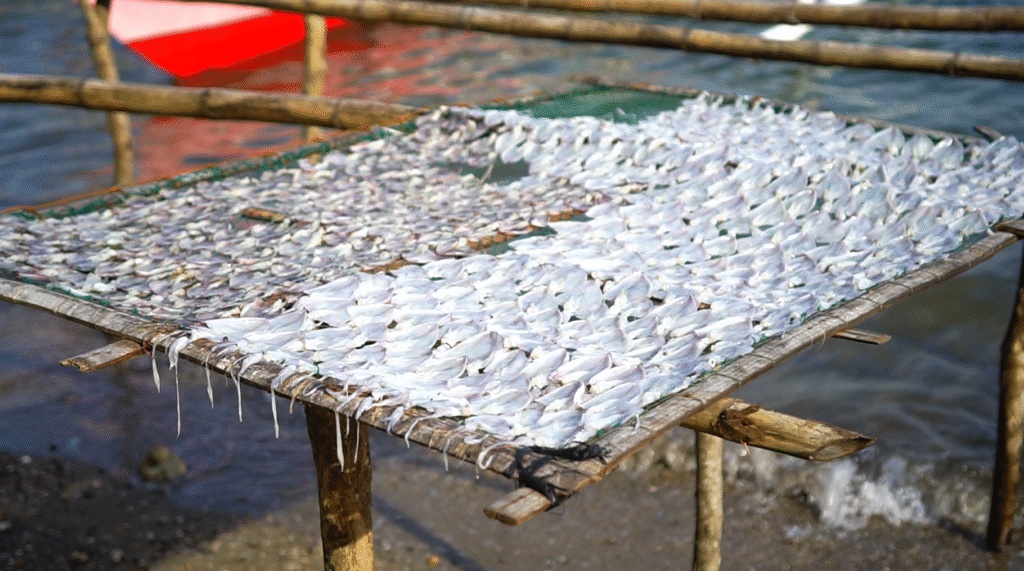
A tradition at a tipping point
Squid drying is a sunrise-to-sunset effort.
Albar heads out for laya, a form of moonlight fishing in which small boats cast off around sunset and return by daybreak. With flashlights guiding the way, they catch squid under the stars, then clean and split them into pakas, or sun-dried strips, by morning before laying them out beneath the intensifying sun.
But not everyone follows the same rhythm. Just a few kilometers away in Sitio Nabolwang, Eliazar Delacruz has adapted a different method. He sets off before dawn in a motorized boat with a heavy net, hauling in his catch by early afternoon.
Despite the differences in technique, both communities face the same hard reality: fewer squid, smaller catches, and increasingly unpredictable conditions. Large squid have become rare, and the smaller ones fetch less in the market.
Those at the other end of the supply chain are navigating their own adjustments. “Squid can cost around 1,400 to 1,500 pesos per kilo now because there’s not enough supply, and sometimes even competition over the catch,” says reseller Jeselle Rivas.
With fewer and lower-quality deliveries, Rivas has no choice but to raise her prices to make ends meet. For buyers, it means limited access to a once-abundant coastal staple.
From 2015 to 2024, heat index levels across the Philippines steadily climbed, with April and May marking record highs. Often overlooked, the index measures how humidity (moisture clinging to the air) intensifies the heat, serving as an invisible heat multiplier on a warming planet. Especially in already humid regions like the Philippines, this hidden force pushes heat stress to dangerous levels, quietly amplifying the human cost of climate change.
While Masbate lacks complete data, it likely experienced the same global pattern: rising heat and humidity that signal both climate change and delayed accountability. Despite mounting evidence, major emitters and fossil fuel backers continue to evade responsibility, leaving frontline communities to bear a crisis they did little to cause.
Yet fisherfolk say the intense sun brings one advantage: it dries the squid faster. What once took a full day can now be done in just a few scorching hours, speeding up sales and reducing spoilage risks.
But even with this benefit, they remain cautious. Fierce waves during certain times, which locals call pulyada, can still bring their livelihoods to a halt.
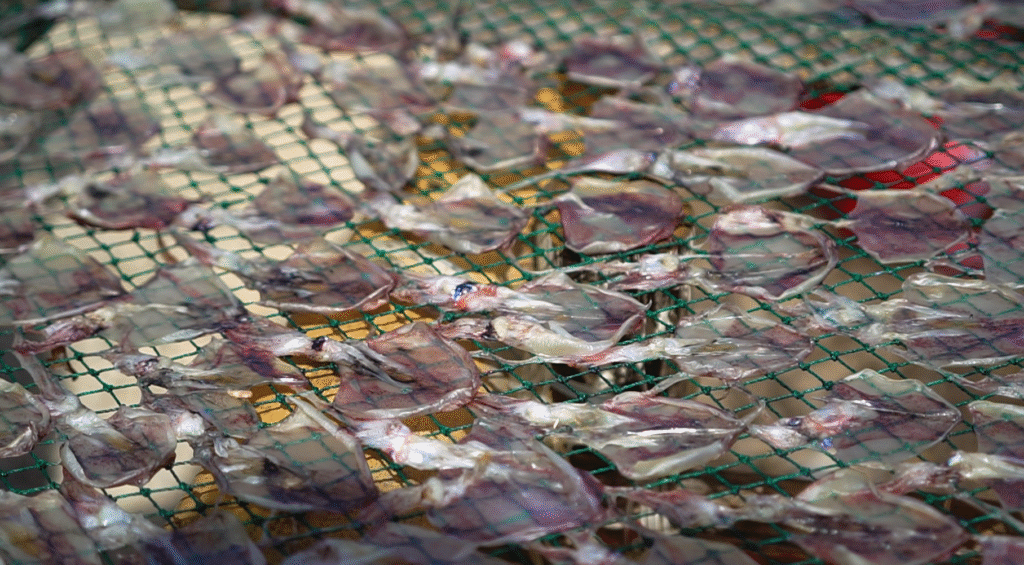
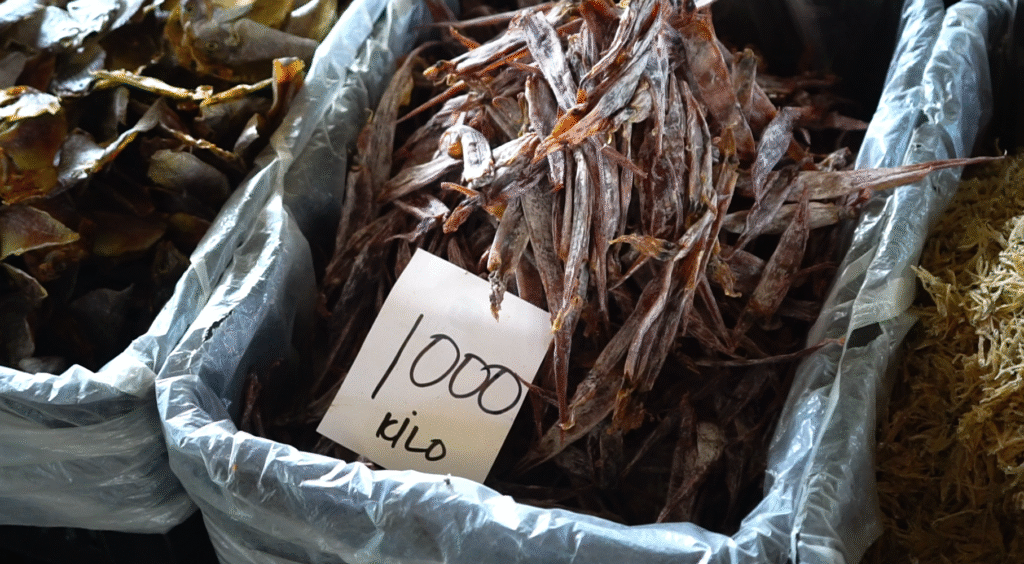
Warming waters, wandering squid
What’s happening beneath the waves matters just as much as what dries under the sun.
“Squid reproduction is highly sensitive to water temperature,” explains Noel Umbao, fisheries management head at the Bureau of Fisheries and Aquatic Resources Bicol. “If it’s too hot, their eggs won’t hatch. If the right conditions aren’t met, they either relocate or die without spawning.”
Umbao notes that squid, being short-lived and fast-growing, are particularly vulnerable to environmental shifts. Even minor changes in temperature or humidity, especially during mating season, can disrupt migration, reduce spawning, and shrink survival rates. The consequences ripple outward: “This not only threatens the livelihoods of fisherfolk but also heightens food security risks in coastal communities already on edge.”
He adds that heat stress, as part of the broader impacts of climate change, affects more than just reproduction. “Excessive heat produces smaller, less healthy squid,” he warns. “It can change reproductive timing or cause nutrient buildup in the water, triggering algal blooms and red tide outbreaks. That undermines entire marine food chains.”
From its peak of 3,281 metric tons in 2021, Masbate’s municipal squid catch plunged to just 466 metric tons by 2024, a staggering decline of over 85%, according to data from the Philippine Statistics Authority. Meanwhile, commercial production collapsed after 2019, dropping to near-zero in 2023 and leaving municipal fishers to shoulder nearly the entire burden of supply.
Masbate’s fishers endure, adjusting day by day by storing half-dried catch in ice, shifting sailing times, and racing the sun. But resilience has limits. They work on, fully aware that sweltering days can lead to exhaustion, even collapse.
“We still go out even when it’s hot,” Albar says. “There’s no rule stopping us.”
